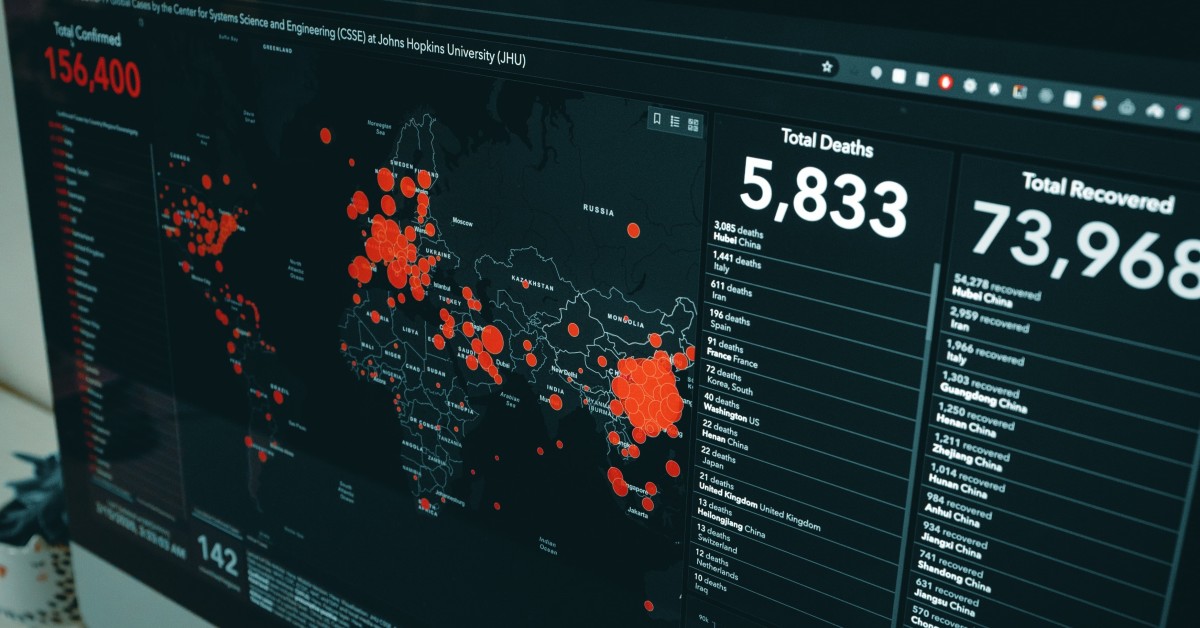
Where Do Epidemiologists Work?
Epidemiologists work in many settings, including hospitals, universities, and federal, [...]

The coronavirus pandemic of 2020 made Americans aware of public health policy in ways they had never been before. Suddenly everyone was talking about “flattening the curve,” “social distancing,” and the dangers of community spread, terms very few were familiar with weeks earlier.
Public health policy is something we all take for granted until a crisis emerges. Then, we want to know that expert public health officials have a plan to prevent a worst-case scenario from occurring.
Those plans don’t just spontaneously arise to meet the situation. Highly trained professionals need to develop them and then convince public officials to implement them. And then, someone has to study those policies to determine whether they work and whether they can be improved. That someone is a health policy analyst.
Health policy analysts work for the federal government—over 4,000 are employed by the Veterans Health Administration alone—but that’s not the only place you’ll find them. State and local governments also hire health policy analysts, as do think tanks, nonprofit organizations, community activist groups, and colleges and universities.
So what does a health policy analyst do? In this article, we’ll discuss that by answering these questions:
The George Washington University Milken School of Public Health defines public health as “a segment of the healthcare industry that works to influence and improve individual and public health through enacting specific goals or legislation.” A health policy analyst can work for the government or a health organization (such as a think tank) to refine current policies and create entirely new ones. As a health policy analyst, you will typically work with a team of other analysts to solve health-related issues.
A health policy analyst’s responsibilities include:
Health policy analysts often work in government agencies. Other employers include:
What you’ll do as a health policy analyst depends, at least in part, on your employer’s agenda. If you work for an organization that focuses on health education policy, you might spend your days developing presentations, compiling publications, or producing informative videos. As a community health policy analyst, you might help design more efficient ways for a local elderly population to get to their doctor’s appointments.
What you earn as a healthcare policy analyst depends largely on where you work, as well as your skill level. Veterans Health Administration analysts earn an average salary of $84,148.67. Senior policy analysts in the federal government earn an average of $106,121 and can earn $140,000 at the highest end of the pay scale (GS-15).
Many analysts are employed as health workers for community and non-profit organizations, which pay notably less (usually $40,000 to $50,000). The average annual salary for all health policy analysts is $62,438, according to PayScale.
There is no mandatory pathway to becoming a healthcare policy analyst—especially during your undergraduate education. You could major in:
Even an accounting degree might serve you well if you are seeking a position that requires finance skills.
Many health policy analysts choose to major in public policy. Top undergraduate programs in this field include:
Some policy analysis jobs call for candidates with a bachelor’s degree and work experience. How exactly does one gain enough work experience to qualify for a job without already having a job? One way to do it is through internships. For instance, the American Public Health Association sponsors inernships at the Center for Public Health Policy. Most colleges and universities have career service centers that help students find and apply for internships.
Many healthcare policy analysts earn a master’s degree, which generally takes two years of full-time study to complete. The highest level of education that an analyst might have is a doctoral degree (usually in public health), but this is rarely necessary unless you want to teach at the university level or pursue a high-level administrative position.
Common graduate degree programs for health policy analysts include:
Each of these degrees will advance your skills and knowledge, preparing you to take on a higher-paying job. The Master of Science in Health Policy and Management is an excellent option if you want to earn a multifaceted degree that covers everything from economics to public health. It will also serve as great preparation for a career in health policy analytics.
The MPH focuses on healthcare planning and evaluating the way infectious diseases spread. In contrast, the MPP covers a broader spectrum of policy and analytics topics (including data, economics, global health, and urban planning). In addition to qualifying you to work as a health policy analyst, these degrees can help prepare you for a career in public health planning and disaster management.
Can’t decide between the MPH and MPP? Earn both through a joint program by attending a school like University of Michigan – Ann Arbor or University of Virginia (Main Campus).
According to data from US News & World Report, excellent public policy programs can be found at:
US News‘ top public health programs include:
Finally, these schools offer well-regarded health policy and management programs:
Questions or feedback? Email editor@noodle.com

Epidemiologists work in many settings, including hospitals, universities, and federal, [...]

All health data analysts sift and sort data to cull [...]

You can enroll in a joint degree or dual degree [...]

Adding a second graduate degree to your JD can position [...]

Statisticians work across employment sectors that include government, business, healthcare, [...]
Categorized as: Public Administration & Policy, Nursing & Healthcare